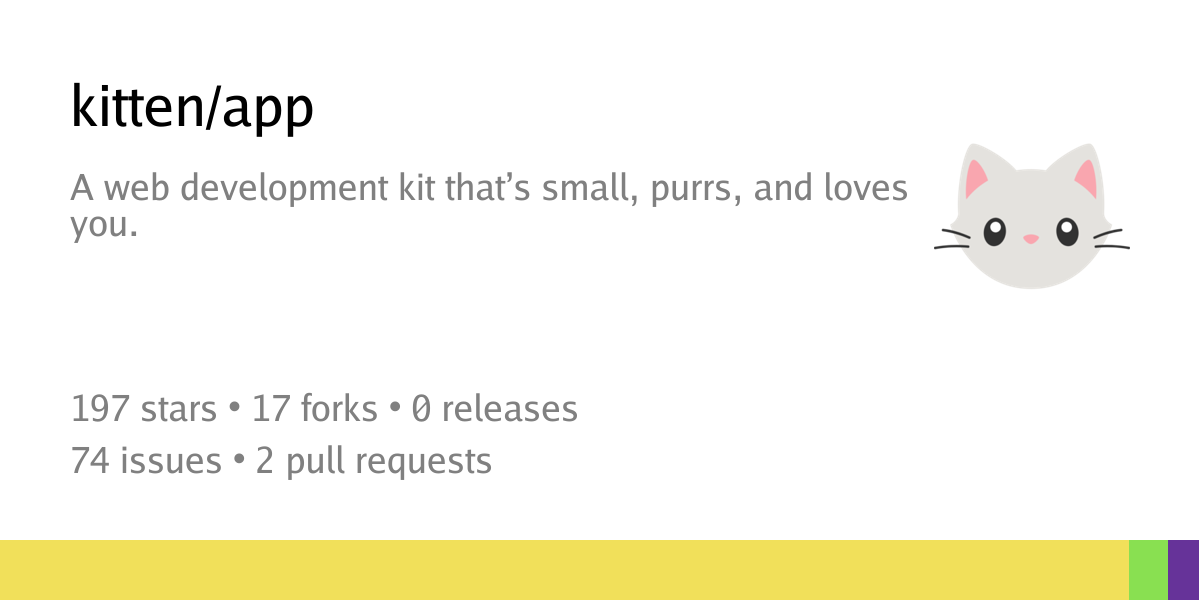2025-08-22 12:01:31
This interested me because of my history with XSLT and how the WHATWG ‘discussion’ to remove it devolved:
https://www.igalia.com/chats/xslt-liam
WHATWG issue:
2025-07-22 00:03:45
Overly academic/distanced ethical discussions
Had a weird interaction with @/brainwane@social.coop just now. I misinterpreted one of their posts quoting someone else and I think the combination of that plus an interaction pattern where I'd assume their stance on something and respond critically to that ended up with me getting blocked. I don't have hard feelings exactly, and this post is only partly about this particular person, but I noticed something interesting by the end of the conversation that had been bothering me. They repeatedly criticized me for assuming what their position was, but never actually stated their position. They didn't say: "I'm bothered you assumed my position was X, it's actually Y." They just said "I'm bothered you assumed my position was X, please don't assume my position!" I get that it's annoying to have people respond to a straw man version of your argument, but when I in response asked some direct questions about what their position was, they gave some non-answers and then blocked me. It's entirely possible it's a coincidence, and they just happened to run out of patience on that iteration, but it makes me take their critique of my interactions a bit less seriously. I suspect that they just didn't want to hear what I was saying, while at the same time they wanted to feel as if they were someone who values public critique and open discussion of tricky issues (if anyone reading this post also followed our interaction and has a different opinion of my behavior, I'd be glad to hear it; it's possible In effectively being an asshole here and it would be useful to hear that if so).
In any case, the fact that at the end of the entire discussion, I'm realizing I still don't actually know their position on whether they think the AI use case in question is worthwhile feels odd. They praised the system on several occasions, albeit noting some drawbacks while doing so. They said that the system was possibly changing their anti-AI stance, but then got mad at me for assuming this meant that they thought this use-case was justified. Maybe they just haven't made up their mind yet but didn't want to say that?
Interestingly, in one of their own blog posts that got linked in the discussion, they discuss a different AI system, and despite listing a bunch of concrete harms, conclude that it's okay to use it. That's fine; I don't think *every* use of AI is wrong on balance, but what bothered me was that their post dismissed a number of real ethical issues by saying essentially "I haven't seen calls for a boycott over this issue, so it's not a reason to stop use." That's an extremely socially conformist version of ethics that doesn't sit well with me. The discussion also ended up linking this post: https://chelseatroy.com/2024/08/28/does-ai-benefit-the-world/ which bothered me in a related way. In it, Troy describes classroom teaching techniques for introducing and helping students explore the ethics of AI, and they seem mostly great. They avoid prescribing any particular correct stance, which is important when teaching given the power relationship, and they help students understand the limitations of their perspectives regarding global impacts, which is great. But the overall conclusion of the post is that "nobody is qualified to really judge global impacts, so we should focus on ways to improve outcomes instead of trying to judge them." This bothers me because we actually do have a responsibility to make decisive ethical judgments despite limitations of our perspectives. If we never commit to any ethical judgment against a technology because we think our perspective is too limited to know the true impacts (which I'll concede it invariably is) then we'll have to accept every technology without objection, limiting ourselves to trying to improve their impacts without opposing them. Given who currently controls most of the resources that go into exploration for new technologies, this stance is too permissive. Perhaps if our objection to a technology was absolute and instantly effective, I'd buy the argument that objecting without a deep global view of the long-term risks is dangerous. As things stand, I think that objecting to the development/use of certain technologies in certain contexts is necessary, and although there's a lot of uncertainly, I expect strongly enough that the overall outcomes of objection will be positive that I think it's a good thing to do.
The deeper point here I guess is that this kind of "things are too complicated, let's have a nuanced discussion where we don't come to any conclusions because we see a lot of unknowns along with definite harms" really bothers me.
2025-07-23 09:57:07
2025-05-23 14:00:11
Join Andrew Musselman and Trevor Grant as they present the latest developments in Mahout's new quantum compute layer, Qumat. They will provide an overview of the project, explain why Qumat was developed, and demonstrate its current capabilities. They will also present a demo of Qumat in action and conclude with calls to action for researchers and engineers who are interested in using and contributing to the project.
Learn more:
2025-07-22 18:40:26
Series B, Episode 01 - Redemption
CALLY: In range.
BLAKE: Force wall.
AVON: [Tries to activate force wall but it just burbles] Primary malfunction. Force wall won't activate.
BLAKE: Leave it. Hit it, Jenna, all the power we've got. Hang on!
https://blake.torpidity.net/m/201/113
2025-07-22 10:25:38
Economics and politics may have contributed to the cancelation of Colbert's show, but mainstream liberal comedy shows are fading amid the death of mass culture (Nate Silver/Silver Bulletin)
https://www.natesilver.net/p/why-colbert-got-canceled
2025-06-22 16:03:53
The Iranian Parliament has voted in support of closing the Strait of Hormuz,
one of the world's most critical oil transit chokepoints
Any final decision on retaliation will rest with the country's Supreme National Security Council and leader Ayatollah Ali Khamenei.
The parliament vote merely advises him of the option to pursue.
2025-07-21 10:22:10
🥳 New Kitten Release
• Improved Markdown parser
Kitten’s JavaScript tagged template strings (`kitten.html`) no longer fail to render as expected when interpolated values are used inside of Markdown where the Markdown render changes source order.
So, for example, the following will now work correctly, whereas, previously, the link source and link text would have been erroneously flipped:
kitten.html`
<markdown>
[${linkText}](${linkSource})
…
2025-07-21 21:57:34
2025-06-23 10:49:10
From 600 Tools to 1 Console: A UX-Driven Transformation
Mariann Kornelia Smith, Jacqueline Meijer-Irons, Andrew Millar
https://arxiv.org/abs/2506.16107 htt…











